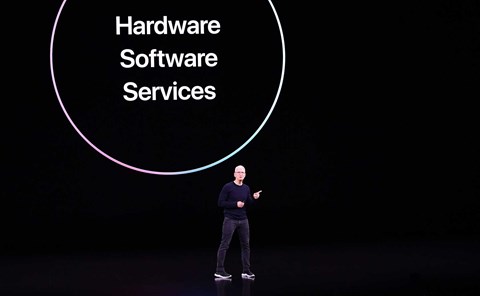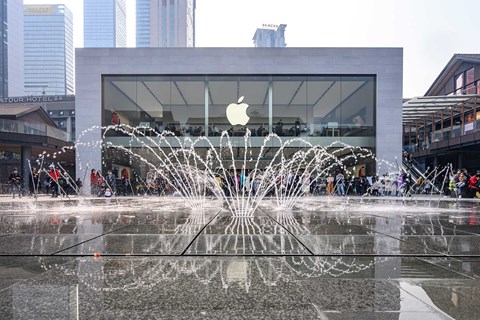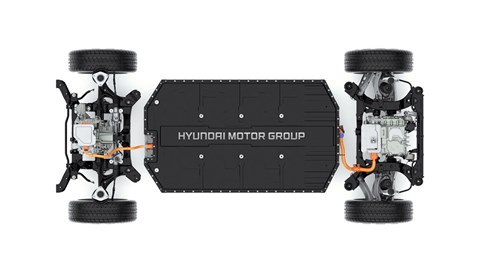► The long-awaited Apple car no longer happening
► iCar now totally cancelled reports Bloomberg
► Follows years of delays
The Apple car is no more. That’s the news from the tech giant according to Bloomberg’s Mark Gurman, a reporter always known for delivering accurate information about the goings on in Cupertino. If true, Apple’s decision to can its EV marks the end of a decade long project which has constantly slipped in terms of ambitions. You can read more about that scope creep below.
Now it looks to be finished for good, with Chief Operating Officer Jeff Williams and project head Kevin Lynch breaking the news to some 2000 staff involved on the project earlier this week. It’s understood that many of those staff will now move to generative AI projects – as well as the recently launched headset business.
Recent delays
There were signs the Apple car was slipping just a few months ago: According to an earlier report by Mark Gurman engineers settled on creating an EV that’ll only use Level 2+ autonomy as opposed to the previous goal of Level 5.
What’s more Apple’s 2026 release date for the car, previously called Project Titan, slipped to 2028 – despite the more conservative autonomous capability.
Apple car: a timeline
Apple first started pondering the so-called iCar back in 2008 when Tesla launched the Model S. But it was not before 2014 that the Californian tech giant actually put together a team of about 1000 software specialists, battery experts and automotive engineers to give life to Project Titan, aka the Apple Car.
In the five years that followed, Titan staged a cleverly concealed rollercoaster performance which seemed to end in mid-2019 when CEO Tim Cook (below) pulled the plug – intermittently or indefinitely.

What had gone wrong? For a start, Apple underestimated the challenge of designing and building a motor car to high-quality standards; of setting up an efficient yet personal concierge-type online sales and service network; and of securing double-digit profit margins that would justify taking a multi-billion investment risk.
The other problem the newcomer from Cupertino faced was that no potential partner – among them VW, BMW, Mercedes, Nissan, even McLaren – would allow Apple to control the data sovereignty and the brand-building customer experience.
Why the Apple Car got back on track
While Titan was never officially pronounced dead, it kept slipping down the firm’s priority list in 2017 and 2018. The low point was reached in 2019 when the Apple fleet of a mere 23 officially registered autonomous prototypes covered in total a negligible 7500 miles on Californian roads. Over the same period, Waymo managed 110 test vehicles which accumulated more than 1.4 million driverless miles.

But the project has gained new momentum in recent years. By spring 2020, the smartphone and computer giant had doubled its car park, started hiring fresh talent and approved fresh funds in an attempt to breathe fresh life into the Apple Car project.
The hiring spree
The EV community was alerted by a hiring spree via consulting firms and Linkedin, suggesting that a well-paying anonymous enterprise was looking for top-notch specialists in the field of electrification, autonomy, AI, VR and digitalisation.
According to two members of the German EV community, the Cupertino-based Special Projects Group had defined 2024 as the target date for what is vaguely described as ‘our Model 3 fighter’. However, by late 2022, that launch date had slipped back a further two years.
And the Apple Car was no longer aimed at the more affordable EV space; insiders talked of a $100,000 (£80k) price tag, pushing it to the top of the pile, not the lower rungs.
Apple working with OEMs
The Apple self-driving car programme has proved a fascinating tale, with more on-offs than an IT helpdesk script. The electronics giant has been in talks with many car makers, including Hyundai and Volkswagen, keen to tap into hardware knowledge.

Talks in South Korea, for instance, focused on Hyundai Kia’s latest E-GMP platform (above) that underpins its latest electric cars such as the Hyundai Ioniq 5 and Kia EV6. After a flurry of excitement in 2021 when the car maker released a statement saying ‘Apple and Hyundai are in discussions’, the company backtracked and downplayed a possible deal.
Project delays and hold-ups
Apple’s original vision was to launch an electric car that leapfrogged traditional vehicles – timed to coincide with the next-gen battery tech and autonomous capabilities that would mean no steering wheel or pedals would be required.
However, the latest reports suggest this won’t be possible; traditional controls are very much back on the agenda. Shares in Apple fell by 2.4% on news of the delay and diluted product plan.
It was maybe a Utopian act of industrial cleanliness too far; you can get rid of most buttons on a smartphone and bin USB ports on a laptop, but Apple’s minimalism has come up against the cold hard reality of developing production cars that meet current safety laws, technological capability and user need.
Seems Silicon Valley can still learn a thing or two from the old guard: manufacturing cars isn’t as straightforward as it seems…
Read more tech stories by CAR magazine